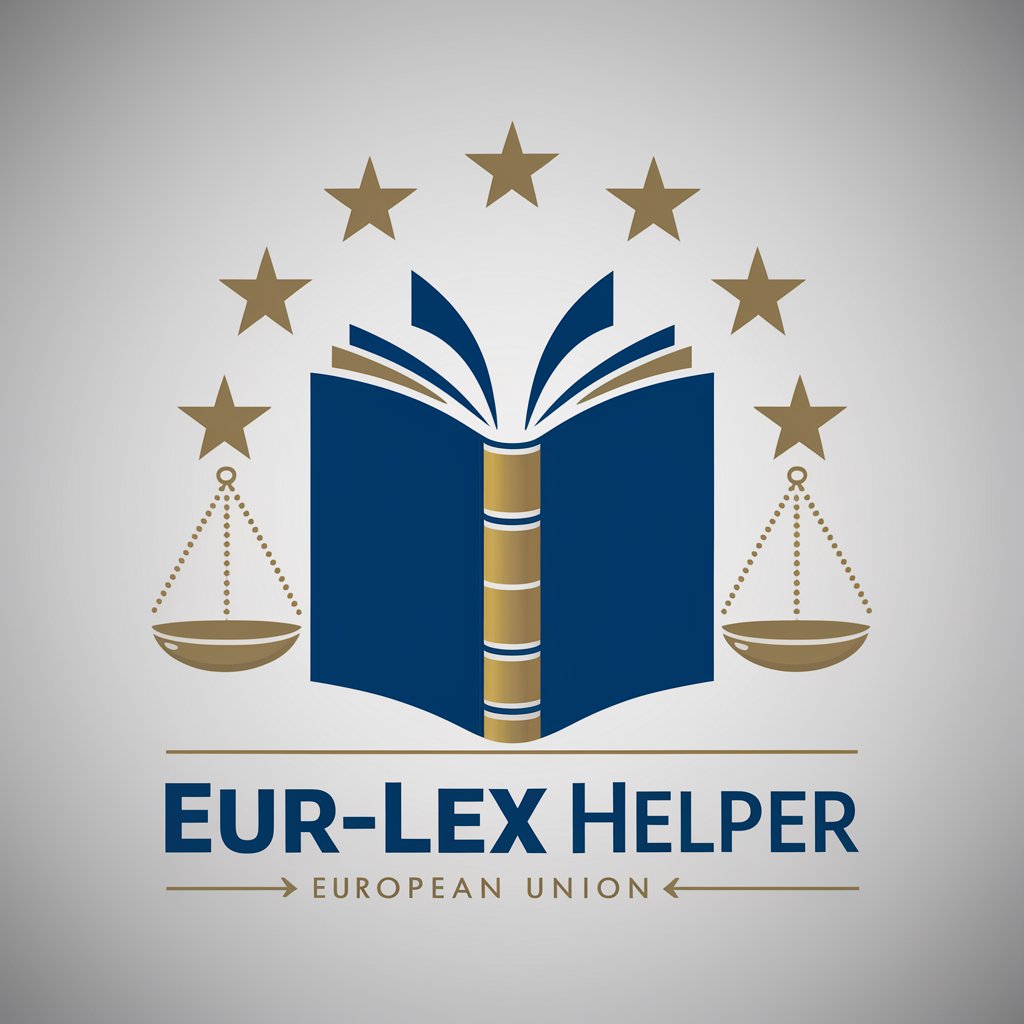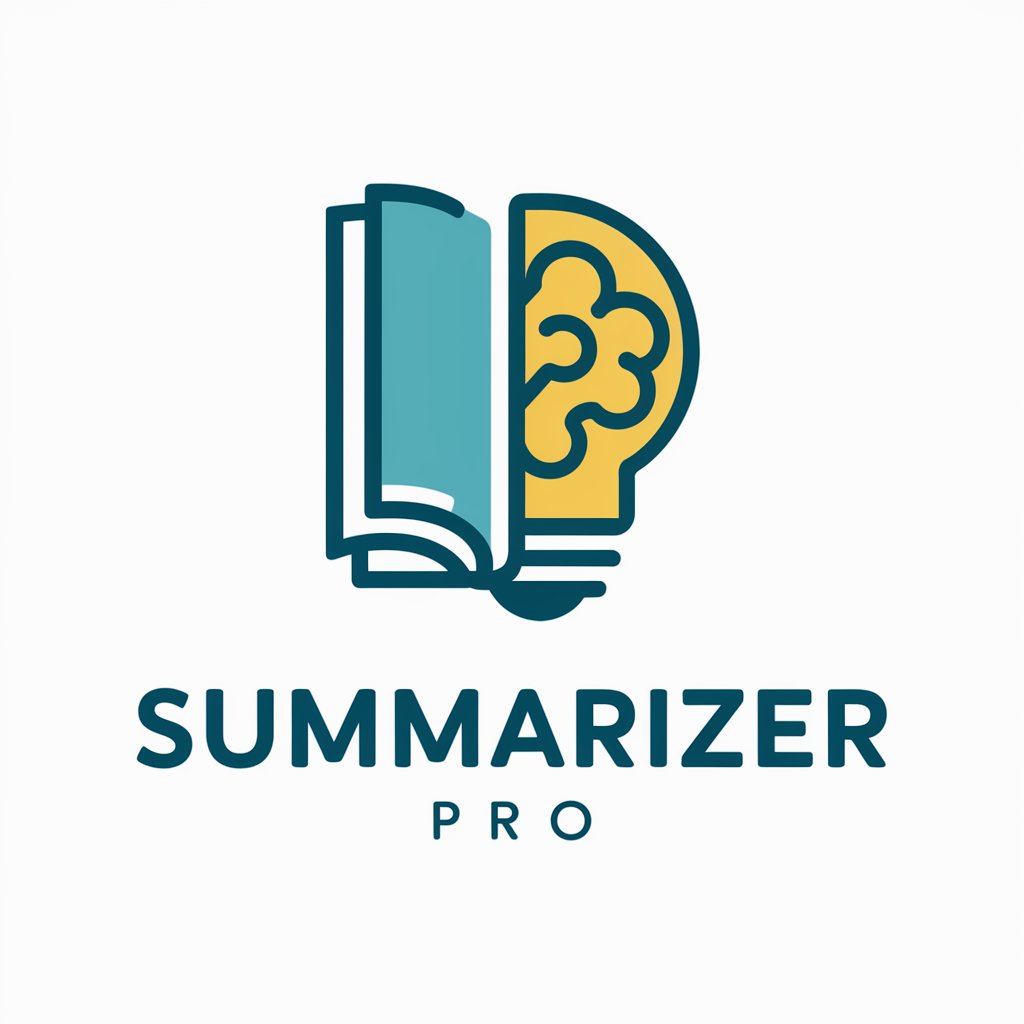EUR-Lex Helper - EU Legal Document Access

Welcome to EUR-Lex Helper, your guide to EU legislation.
Streamlining EU Legal Research with AI
Explain the process of finding EU regulations on EUR-Lex...
Describe the key features of the EUR-Lex database...
How can I access case law information on EUR-Lex?
What are the steps to search for legislative documents in EUR-Lex?
Get Embed Code
Introduction to EUR-Lex Helper
EUR-Lex Helper is a specialized tool designed to assist users in navigating and understanding the complex landscape of information within the EUR-Lex database. This includes European Union legislation, case law, and other legal documents. The primary aim of EUR-Lex Helper is to provide detailed explanations, contextual information, and guidance through the vast content available on EUR-Lex. By utilizing a combination of browsing capabilities, direct querying of EU Publications Office datasets, image generation for illustrative purposes, and data analysis through Python, EUR-Lex Helper offers a comprehensive suite of functions to enhance the user's understanding and engagement with EU legal texts. An example scenario might involve a user seeking to understand the implications of a specific EU directive on national legislation. EUR-Lex Helper could provide a detailed overview of the directive, explain its relevance, and illustrate its impact through generated visual aids or data analysis. Powered by ChatGPT-4o。

Main Functions of EUR-Lex Helper
Legal Document Retrieval
Example
Retrieving the full text of the GDPR for analysis.
Scenario
A data protection officer needs to understand specific provisions of the GDPR to ensure their organization's compliance. EUR-Lex Helper can quickly locate and provide the full text, along with relevant interpretations or case law.
Legislative Analysis
Example
Analyzing the legislative history and amendments of the Common Agricultural Policy.
Scenario
An agricultural policy analyst is researching changes in the EU's Common Agricultural Policy over time. EUR-Lex Helper can compile the legislative documents, amendments, and related legal acts to provide a comprehensive overview.
Case Law Summaries
Example
Summarizing key rulings from the European Court of Justice.
Scenario
A law student is studying the influence of EU law on member states. EUR-Lex Helper can summarize important cases, highlighting the legal principles and their implications for EU and national law.
Visual Data Representation
Example
Creating visual aids to illustrate the impact of EU regulations on environmental standards.
Scenario
An environmental NGO wants to campaign about the importance of EU environmental regulations. EUR-Lex Helper can generate charts or infographics showing progress in legislation and its effects on sustainability goals.
Ideal Users of EUR-Lex Helper Services
Legal Professionals
Lawyers, judges, and legal scholars who require detailed and accurate information on EU legislation, case law, and legal precedents. They benefit from the ability to quickly access and analyze legal documents for case preparation, research, or educational purposes.
Policy Makers and Analysts
Individuals involved in the drafting, analysis, or implementation of policy at the EU or national level. They use the service to understand the legal framework, historical context, and implications of various policies and directives.
Academics and Students
University professors and students specializing in EU law, international relations, or European studies. They rely on EUR-Lex Helper for research, study, and teaching materials, particularly for complex legal analyses and accessing a wide range of legal documents.
Public Interest Groups
NGOs, advocacy groups, and civil society organizations focused on areas such as environmental protection, human rights, or consumer protection within the EU context. They benefit from understanding legislation, policies, and their implications to support their campaigns and inform their stakeholders.

How to Use EUR-Lex Helper
Start your trial
Access a free trial immediately at yeschat.ai without needing to sign up for ChatGPT Plus or any login credentials.
Identify your need
Determine the specific information you're seeking from the EUR-Lex database, such as EU legislation, case law, or treaty information.
Craft your query
Formulate a precise question or keyword phrase related to your information need, ensuring it's specific to European Union law and policy.
Submit your query
Use the EUR-Lex Helper's input box to submit your query. You can ask for legal texts, summaries, or clarification on EU legal matters.
Review and refine
Examine the provided information for relevance and accuracy. If needed, refine your query with additional details or context for more precise results.
Try other advanced and practical GPTs
Hierarchical Topic Mapping Expert
Mapping Complex Topics, Simplified.

Romantic Love Indicator
Decipher Love with AI-Powered Insights

Mind Map Mate
Mapping ideas with AI precision.

Tale Smith
Elevate Your D&D Campaign with AI

Road
Navigate smarter with AI-powered road insights

PWS | Course Architect
Revolutionizing Course Design with AI

Garage Sale GPT
Navigate sales smarter, with AI.

Summarizer Pro
AI-powered, personalized content summarization

Dr. BajaWell Hypertension
Empowering Healthier Lives with AI

Medical Devices
Empowering healthcare with AI technology

Medical Malpractice Watchdog
Navigating Medical Malpractice with AI Precision

Emergency Medical Technician (EMT)
Empowering emergency care with AI

Frequently Asked Questions about EUR-Lex Helper
What information can EUR-Lex Helper provide?
EUR-Lex Helper offers access to a wide array of EU legal documents, including legislation, case law, treaties, legislative proposals, and consolidated legal texts.
How does EUR-Lex Helper improve research efficiency?
By allowing users to directly query the EUR-Lex database with specific questions or keywords, the tool streamlines the research process, providing quick, targeted results.
Can EUR-Lex Helper assist with legal analysis?
While EUR-Lex Helper can provide legal documents and information, the analysis and interpretation of legal texts remain the user's responsibility. However, it facilitates access to the necessary resources.
Is EUR-Lex Helper suitable for academic research?
Yes, EUR-Lex Helper is an invaluable resource for academics researching EU law, offering comprehensive access to primary legal sources necessary for thorough analysis.
What languages does EUR-Lex Helper support?
EUR-Lex Helper provides access to documents in all official languages of the European Union, subject to the availability of documents in those languages on the EUR-Lex database.
